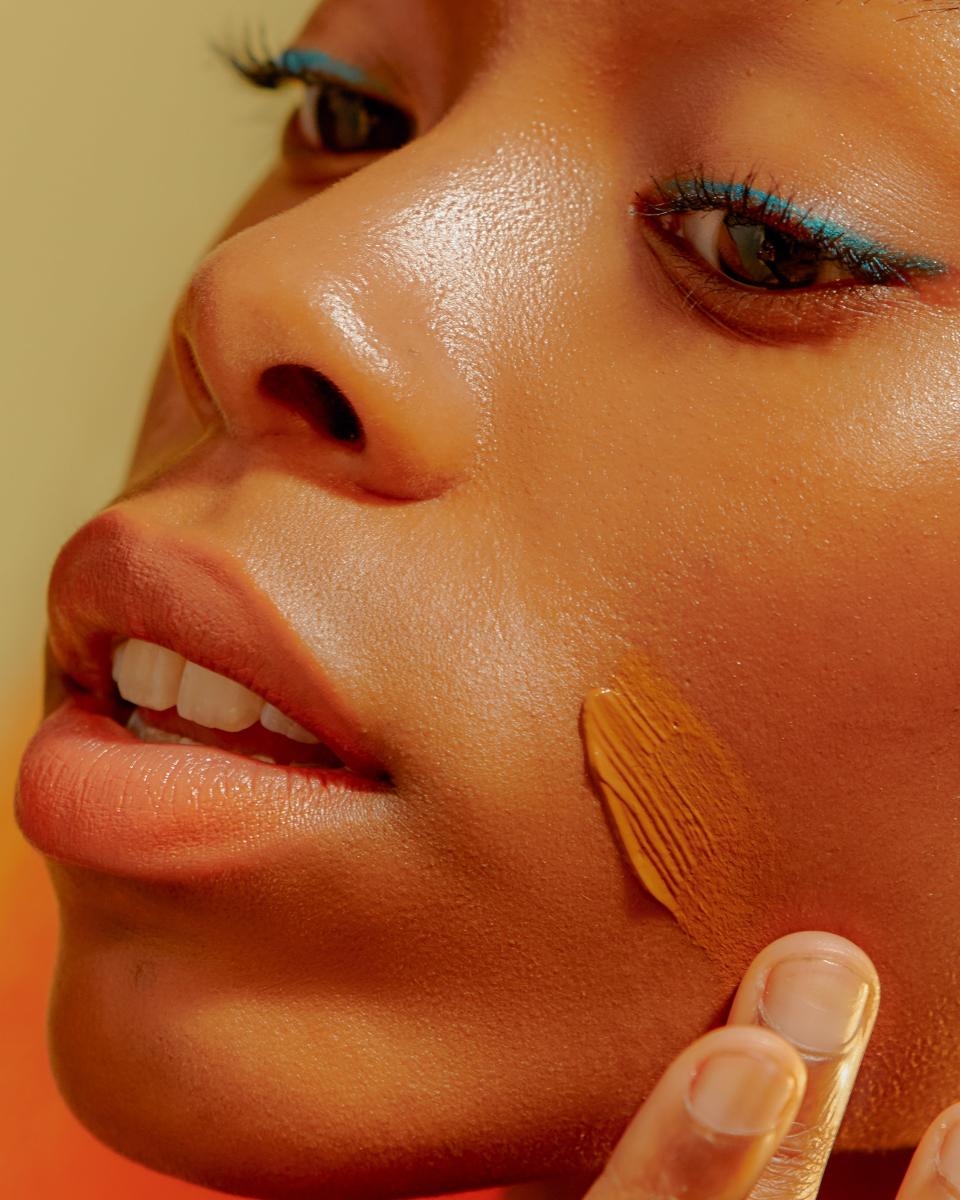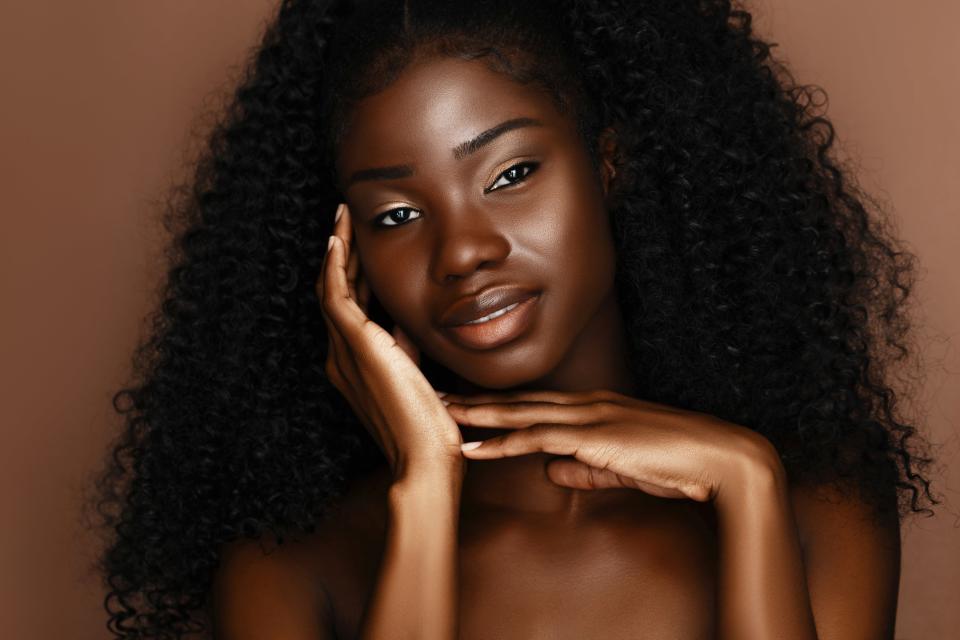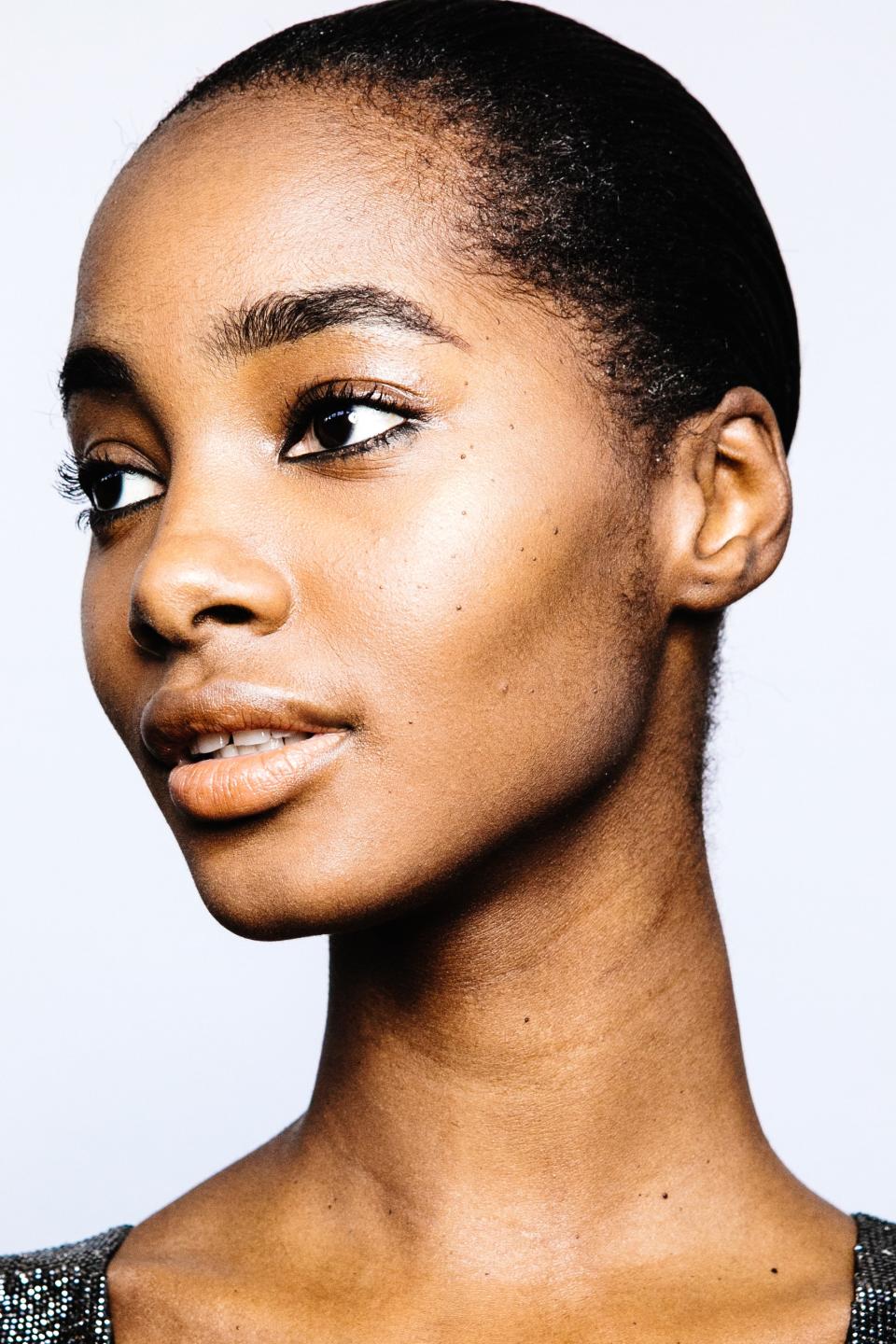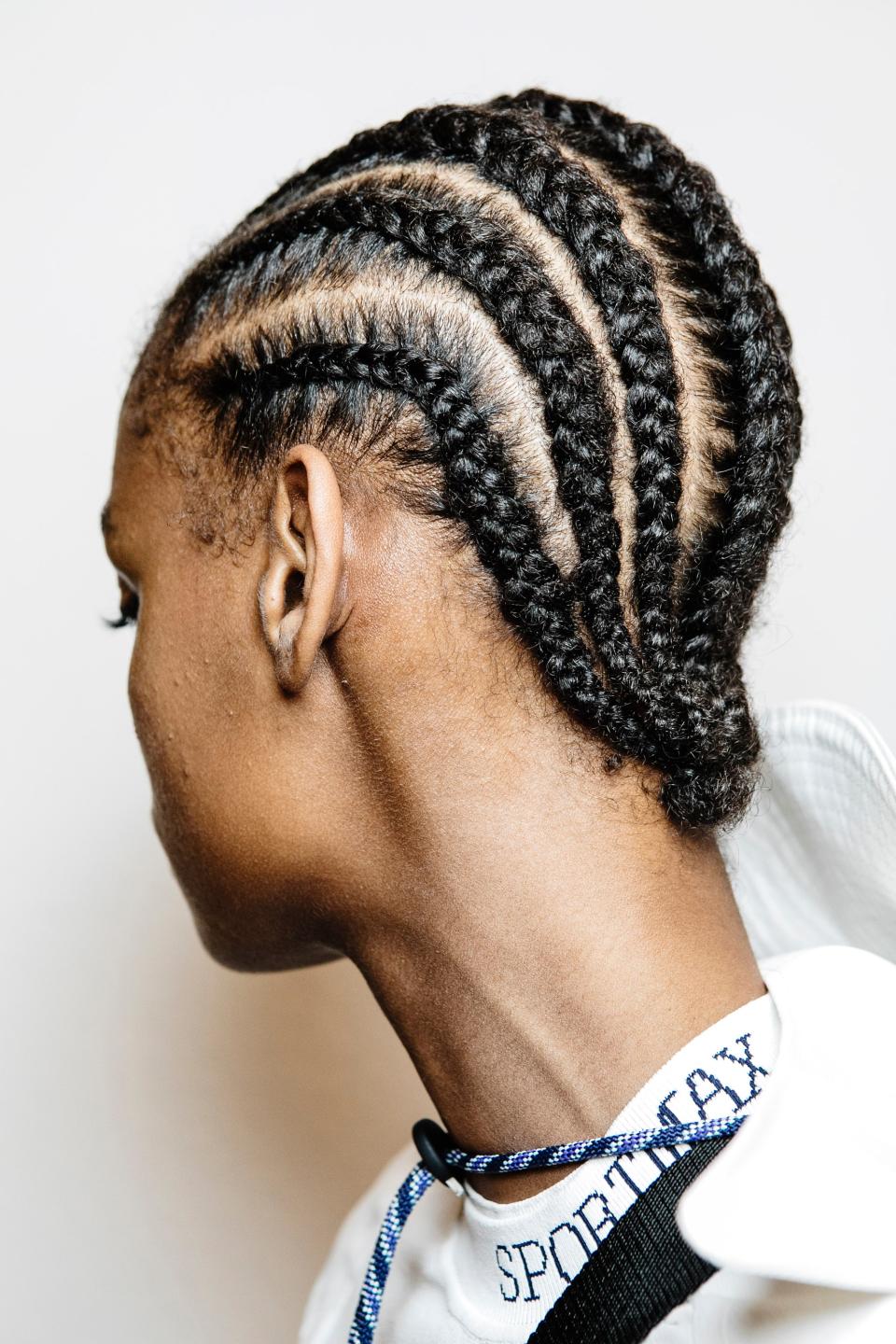Supporting Black People in Beauty Goes Deeper Than Buying Black
It's official: We're in the middle of an overwhelming moment in U.S. history. But it's a moment that calls for a reset, and that can only come from non-Black people taking a long, hard look within and examining some of their attitudes and actions — conscious or unconscious — that have historically marginalized Black people. Racism has insidiously manifested into the fiber of daily activities, down to things as granular as our beauty routines.
We'll all need to arrive at tiny moments of awareness and acceptance at every turn. When creating fun and unique designs with edges, we will have to consider how historically Black women have lost job opportunities and livelihoods because those same looks were viewed as "ghetto" when they originated them.
We'll need to watch with a discerning eye, instead of consuming YouTube video after YouTube video about how to contour our noses, and ask ourselves whether we are perpetuating the notion that Black features are less beautiful.

Young Confident Women Applying Makeup Foundation
Getty ImagesWe'll need to certainly consider whether the products we buy are not just green, but also Black so that we can contribute to the restoration of economic wealth for Black entrepreneurs. And while all of that will certainly elevate us from the history which we've come from, it will not provide transformational change.
There is work to be done at every level of our society and of our lives. As it relates to beauty, here are a few more immediate efforts that must be made.
Advocate for Black Beauty Influencers
We have heard the story for years: Beauty influencers are developing entire empires from brand partnership opportunities. Through the lens of today's Black Lives Matter movement, however, the story becomes fraught with layers of exclusion.
Clare Brown Meneely, a Black influencer who has been in the space for many years, recently offered meaningful education to her community via Instagram about the reality of influencer culture as it relates to Black creators. The takeaway: While Black influencers exist, the industry has long treated them like they don't matter.
"Black influencers are plentiful. There are thousands of Black bloggers, vloggers, podcasters, and other content creators who are doing amazing work and want to partner with brands," Meneely explains. "Many Black influencers are seasoned professionals who have been at it for years — but they have never seen a major collaboration come their way."
When it comes to wealth generation, then, it seems as though there is a cap for Black creators.
"Black influencers rarely go on the fancy press trips, they don't get the Nordstrom lines or the cookbook deals,” she says. "Meanwhile, their white counterparts receive huge collaboration offers seemingly overnight for the same work. By [brands] omitting Black bloggers from their strategy, they are missing a huge buying demographic. Black women will spend big bucks on brands that show them authentic representations of themselves."

African skincare models with perfect dark skin and curly hair. Beauty spa treatment concept.
Getty Images"It isn't enough for brands to say 'I can't find influencers of color'. That is a tired excuse at best and an outright lie at worst. Brands need to hire Black influencers — and not just one to check a diversity box. Brands need to create a community of Black influencers, just like they worked so hard to build with white influencers. Work with Black influencers long term, invest in them, and watch the payoff. Trust me — it'll be worth it."
Janell Hickman, a Black editor and writer who has been working in the beauty industry for well over a decade, elaborates on why this is not a "check-the-box" opportunity, but a necessary change that must be sustained.
"In the past, there used to be this general sentiment of 'one-and-done,' but to quote another movement's slogan: time's up," Hickman tells Allure. "Black people are a diverse body of individuals who require much more than just one face. An influencer is nice, but so is layering on a Black artistic brand director, a Black R&D professional, a well-thought shade range that has been vetted by actual Black women — you get the gist. We need many and hiring more people of color is a long-term game, not a short one."
As we think through this moment, it will be important that everyone begins asking brands "where are the Black creators?" to reinforce the need for ongoing visibility and opportunity for Black creators. This is how we will generate a more inclusive story about influencer empires.
Restore Black Wealth Through Product Purchases and Hiring
Easy wins at this moment include buying more products from Black-owned businesses; the "heavier lifts" include advocating for the hiring of more Black employees at every beauty company in the industry — and for the equal payment of Black women. Uoma Beauty founder Sharon Chuter recently launched the #PullUporShutUp challenge, calling for brands to release data regarding the amount of Black people employed on their corporate ends, and how many sit in leadership positions.
"Here's where our white counterparts and allies come in. For so long, Black people have been taught, told, and quite frankly bullied into feeling 'grateful' for opportunities that we are overqualified for and/or overlooked for senior-level roles," Hickman explains. "[White women]: Assist us in amplifying our voices by sharing what you make, so we are no longer kept in the dark when it's time to talk about money. To catch-up, we need to equal, adequate pay."

Philosophy Di Lorenzo Serafini - Backstage: Milan Fashion Week Autumn/Winter 2019/20
Getty ImagesAll of this begs the question: Why is financial support so critical? To Hickman's point, it's about catching up. I've personally written about this at length for my network, highlighting how the restoration of Black wealth is a critical piece of the movement for Black lives. As generations of oppression have persisted, so has the denigration of Black people’s ability to build true upward mobility for themselves.
And one purchase from a Black-owned product line is not enough when as of 2018, the wealth gap between Black and White people in America is staggering. Black families' net worth only amounts to $5 for every white family's $100, due to an extensive history of disenfranchisement that leaves Black people out and behind. It is a hard truth that we have been grappling with right up to this moment in time.
Stop Perpetuating and Apologizing for Cultural Appropriation
Black people across the Internet have attempted to have their voices heard about cultural appropriation for years, yet many times non-Black groups continue to perpetuate, invite, and apologize for cultural appropriation.
Too many times, we celebrate white celebrity style — from Billie Eilish to the Kardashians — without understanding or acknowledging that it was first created by Black people. We will have to become very honest with ourselves about the lack of knowledge and begin the education process to ensure we are celebrating Black creativity, not celebrating the plagiarism of Black creativity.
"I saw a funny post on Instagram noting that 'Black people had to figure out what balayage was, too.' And that's real," says Hickman. "If you, as a non-Black person, don't know or understand something, do two things in this order: research, then ask. For most of our lives, we had to learn all about white culture without being able to use it in any context — yet we know it. Don't know where box braids originated from? It likely isn't the Kardashians and I am 100 percent certain a creator/editor of color has already tackled that topic."

Sportmax - Backstage - Milan Fashion Week Spring/Summer 2019
Getty ImagesInstead of asking Black people you know or follow to educate you, seek out the information already available on your own. "Find them, quote them, and best-case scenario: hire them. Listen and do what you need to do not to get dragged by Black Twitter because they aren't playing around anymore."
To learn more about the depths of protecting Black work, visit the Institute for Intellectual Property & Social Justice, an organization that has fought to protect Black creators — including those in the beauty space — from appropriation, which is just another word for plagiarism.
Absorbing all of this may be a lot, but it is an underlying theme that Black people in the beauty industry think about daily. That’s why now, more than ever, if we want to move past this moment, non-Black people must integrate this work into their routines at every level — without asking for help, because the resources to find this information already exist.
More ways you can support Black people:
Where to Donate to Support the Black Lives Matter Movement Right Now
19 LGBTQIA+ Black Beauty Creators You Should Be Following ASAP
The People Behind the Black Lives Matter Art Being Shared on Instagram
Now, see some of the most popular Black hairstyles over the past century:
You can follow Allure on Instagram and Twitter, or subscribe to our newsletter to stay up to date on all things beauty.
Originally Appeared on Allure

